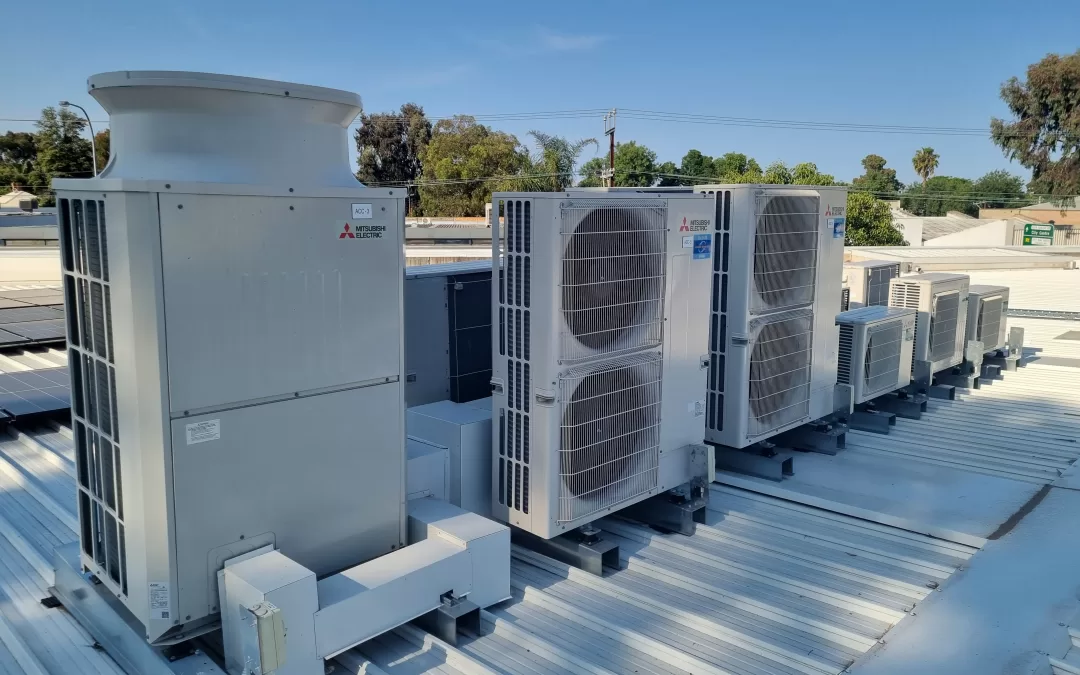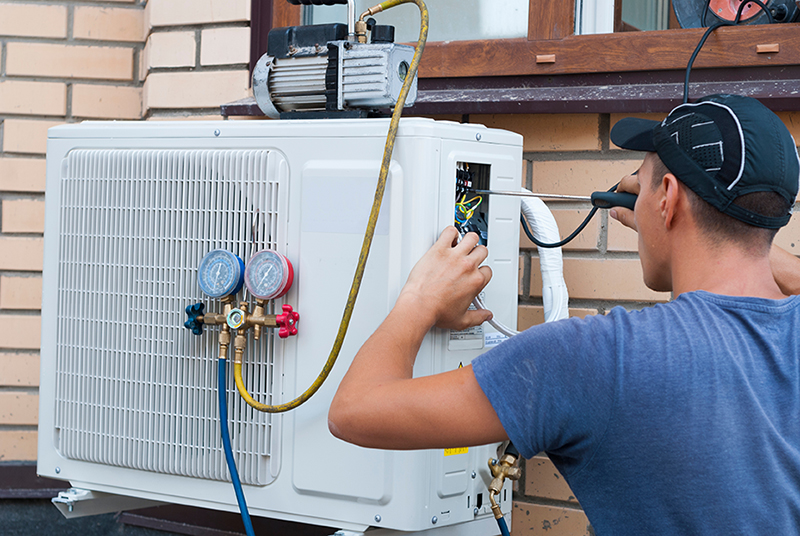Your Guide to Selecting the Right HVAC System for Your Demands
Picking an appropriate HVAC system is a critical choice that can dramatically affect comfort and energy performance in your home. In addition, recognizing the various types of systems available and their power scores can help lead your option.
Understanding HVAC System Types
When selecting an a/c system, it is necessary to recognize the various kinds available to meet your details needs. The main groups of heating and cooling systems consist of air conditioning systems, ductless mini-split systems, heat pumps, and heater systems.
Central air systems are designed to cool down several areas utilizing ductwork to disperse conditioned air. They are suitable for bigger homes requiring regular temperature control. Ductless mini-split systems, on the various other hand, offer adaptability and effectiveness, as they enable zoning abilities, making it possible for individual space temperature level policy without the requirement for ductwork.
Heat pumps operate by transferring heat instead than creating it, making them an energy-efficient choice for both home heating and air conditioning. Alternatively, furnace systems utilize combustion to produce warm, making use of either electrical energy, oil, or gas.
Each system has distinctive benefits and considerations, including installation requirements, maintenance, and overall costs. Understanding these types will certainly aid property owners make notified decisions based on their particular needs, climate, and budget restraints, inevitably making certain optimum convenience and performance.
Reviewing Power Effectiveness
Power effectiveness is a vital factor in the choice of a HVAC system, as it straight impacts both energy costs and environmental sustainability. The Seasonal Power Efficiency Proportion (SEER) and the Heating Seasonal Performance Variable (HSPF) are important indications for air conditioning systems, representing their efficiency over a regular cooling and home heating season, specifically.
In addition, search for systems that have actually earned the ENERGY celebrity tag. This certification indicates that the equipment satisfies strict power performance standards set by the united state Epa. Think about the system's variable-speed modern technology, which allows for much more reliable procedure by adjusting the outcome to match need, better enhancing energy cost savings.
Additionally, correct insulation and duct securing can dramatically influence the system's overall effectiveness. In summary, choosing an energy-efficient cooling and heating system not just lowers your energy bills however likewise adds to an extra lasting setting, making it an essential consideration in your acquiring process.
Assessing System Size
Selecting the proper size for a cooling and heating system is essential to guaranteeing ideal performance and effectiveness. An undersized system may struggle to maintain preferred temperatures, resulting in increased wear and tear, greater power intake, and reduced convenience. On the other hand, an oversized system can result in quick cycling, which not only creates inadequacies yet likewise impacts humidity control and air quality.
To assess the perfect sizing, it is necessary to conduct a lots estimation, which thinks about elements such as the square footage of the space, insulation degrees, home window dimensions, and local environment problems - hvac. This estimation assists identify the British Thermal Devices (BTU) needed for cooling and heating. In addition, it is crucial to account for details requirements, such as the number of owners and the existence of heat-generating appliances

Installation Costs and Budget
An extensive understanding of setup expenses is vital for services and house owners thinking about a brand-new a/c system. The overall cost of setup can vary widely based on numerous aspects, consisting of the sort of system, the intricacy of setup, and the location of the home. Generally, installation costs can vary from $3,000 to $10,000, relying on the system's size and efficiency.
When budgeting for a HVAC system, it is critical to take into consideration not only the initial installment prices however also any additional costs that may emerge, such as ductwork alterations, electrical upgrades, or permits. In addition, it is recommended to obtain numerous quotes from certified heating and cooling contractors to make sure affordable prices.
Property owners need to likewise consider the prospective long-term cost savings related to energy-efficient systems. While the ahead of time expenses might be higher, energy-efficient models can bring about significant financial savings on utility costs in time.

Maintenance and Longevity Considerations

Correct maintenance includes regular assessments, filter substitutes, and cleaning of air ducts and coils (hvac). Overlooking these jobs can cause lowered efficiency, enhanced energy expenses, and early system visite site failing. Home owners ought to likewise take into consideration the schedule of solution agreements, which often offer scheduled maintenance and concern service, making sure that the system stays in peak problem
Durability varies by system type; for example, properly maintained central air devices can last 15 to two decades, while warmth pumps might have a life-span of 10 to 15 years. Picking a system with a solid track record for dependability, together with buying routine maintenance, can considerably enhance the system's toughness. Additionally, selecting higher-efficiency designs may bring about lasting financial savings on power expenses, balancing the initial visite site financial investment with time.
Verdict
In final thought, picking a suitable Cooling and heating system requires mindful consideration of different factors, including system kinds, power effectiveness, and dimension. Inevitably, a knowledgeable choice will certainly enhance comfort and performance in domestic atmospheres while making best use of power cost savings.
Picking a suitable Heating and cooling system is an essential decision that can considerably influence convenience and power efficiency in your home.Energy effectiveness is an essential element in the choice of a Cooling and heating system, as it straight impacts both utility costs and environmental sustainability. The Seasonal Energy Effectiveness Proportion (SEER) and the Home Heating Seasonal Efficiency Variable (HSPF) are vital signs for air conditioning systems, representing their effectiveness over a common air conditioning and home heating period, specifically. Choosing a system with a solid credibility for integrity, along with spending in routine upkeep, can substantially improve the system's longevity.In final thought, selecting an appropriate A/c system requires cautious consideration of different elements, including system types, power performance, their website and dimension.